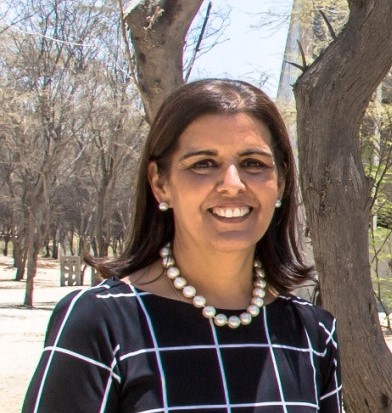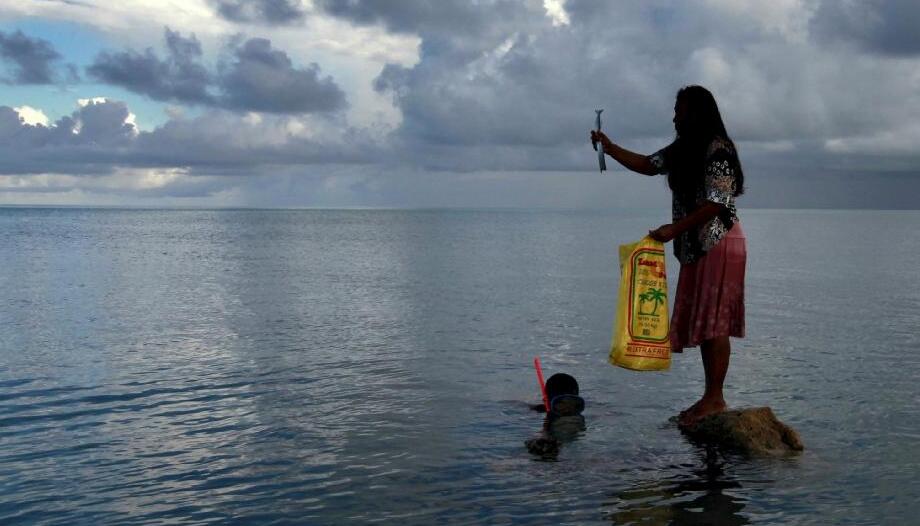D. in Philosophy from the University of Navarra, María Pia Chirinos is currently Vice Rector of the University of Navarra. University of Piura at the Lima Campus, where she is also a senior lecturer in the Faculty of Humanities.

This institution is particularly committed to the care of our common home and, in the coming months, will celebrate, together with the St. Thomas University of Minnesotaa congress to celebrate the 10th anniversary of the encyclical Laudato Si' of Pope Francis. An event that, as she herself points out, will be a special occasion to remember and pay tribute to the pontiff who has highlighted the importance of caring for creation for the life of the Church.
In this interview with Omnes, Chirinos reflects on the lack of knowledge of the ecclesial magisterium on the care of the planet and stresses the importance of the human being as the center and responsible for divine creation.
In your opinion, what are the keys to interpreting Laudato si' in our society today?
-The basic idea of Laudato Si' is already set out in the Pope's first homily on March 19, 2013. In other words, the Encyclical does no more than continue his concern for man and woman as custodians of creation.
In Laudato Si', the presence of the human being is ambivalent, it is not univocal: the human being is both a recipient of care and an agent of care. In this context, there are important keys for our society: the equivalence between the ecological and social dimensions - "a true ecological approach always becomes a social approach" (LS 49)-; the relationship between justice and poverty, not only human but also of nature -we must "listen both to the cry of the earth and to the cry of the poor" (LS 49)- or the call for an integral ecology, which embraces all creatures from the common home, leitmotiv of the document. All these ideas and more are key to a broader understanding of our society and its main challenges.
The Pope then asked us for an "ecological conversion". How can this request be materialized?
-In the Encyclical, this "ecological conversion" found stronger expressions. For example, the denunciation of "schizophrenia, which ranges from the technocratic exaltation that does not recognize the value of other beings to the reaction of denying any value peculiar to the human being. If the Pope speaks of schizophrenia, of a double life, conversion must be directed towards an understanding of the world in "unity of life".
It is not a matter of standardizing all creatures, but of recognizing the value of each one - Kant would distinguish between the value of nature and the dignity of the human being - and above all of revaluing our task of caring for and preserving our common home.
Materializing this request is a great challenge for today's mankind, but it is a challenge that we should be passionate about. Why? For the simple reason that - at least Christians - we can contribute to solving it from the position of each one of us: from academia through research and teaching in humanistic and scientific subjects; from business, seeking sustainability and social justice; from politics, with laws that respect life and promote the care of nature; and from many other areas such as communication, economics, etc.
In this ecological magisterium, Francis took up part of the call of his predecessors. Do we know little of the depth of the relationship between all of creation?
-We know little about it and, moreover, we know it badly. There is an underlying issue that makes it difficult: the little understanding of matter and, more specifically, of living matter or what is called in German Leib (living body).
Since modernity, everything that is matter has been understood as an inert, abstract reality. Today there are environmental movements that denounce this abuse with good reason, but they fall into the extreme position that anathematizes the power of human beings over nature. Pope Francis denounces this meaning of power. Power is service, it is care, it is respect. Such a view is proper to the Judeo-Christian vision, already present in the first pages of Genesis. God creates Adam not only to dominate and work the earth, but also to guard it. Dominion should not be understood as abuse or arrogance. Moderns did so and many erroneously transfer this meaning to Genesis. However, in the beginning Adam's role was very clear: he knew everything created, gave it a name and was to guard it.
At the university where you work, the issue of care for the common home is one of the most important lines of work. What insights has the papal magisterium given you in this area, and what initiatives are you carrying out?
-Due to the geographical circumstances of the University -it began in the middle of a desert that suffers the consequences of climate change such as the El Niño phenomenon-, our institution has been forced to consider projects of special impact. One of them -which dates back to the 1980s- consisted of reforesting our campus. Its 130 hectares have become the oxygen lung of the city of Piura, as a result of planting hundreds of carob tree seeds, which are now home to a flora and fauna rich in diverse species.
In addition, our Architecture program, through the alumni who have already graduated, is making inroads into urban problems typical of the cities around us in order to improve the quality of life.
At our Lima campus, we will implement renewable energies as part of a pilot energy management project, a pioneer among universities in the capital.
Last but not least, we are organizing together with St. Thomas University (Minnesota, United States) a congress on the tenth anniversary of Laudato Si'.which will take place in Lima during the first days of July. We never imagined that it would be a posthumous tribute to Pope Francis.









